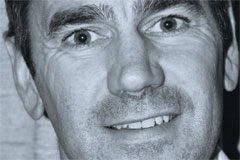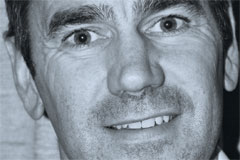
When I’m away from the stethoscope I have a number of ways of winding down, techniques which I have developed over the years to keep me refreshed and ready for action to deal with any manner of presentations of hayfever that I might see on a busy Monday morning.
So quite apart from the chores of everyday life, and the demands of chasing children around the county for various activities, I sometimes find time for myself to get some exercise or spend some quality time with Mrs C.
Recently, I have rekindled my love of photography and have invested in some new kit (what good is a hobby unless you can immerse yourself in new kit?). I am now spending time with my nose to the ground looking for insects, and enjoying a macro view of life, which is slightly more rewarding than looking in people’s ears to confirm the presence of wax. This has forced me to slow down, and look at detail – something I’m not used to doing as we live our lives at such a fast pace, and work in a whirlwind of patients, paperwork and meetings. The devil is in the detail they say, but in the macro photography world, the detail is beautiful.
What has this got to do with general practice? Well I think detail is important and sometimes overlooked in the flurry of overdemand. I suspect we all have little quirks and habits that we learn to give us an edge, to be a better doctor. Who doesn’t want to be good at what they do? I think we are no different and want to be thought of us someone who is not only good at their job, but who cares, and wants to help.
It is hugely satisfying to hear the appreciation in patients’ voices
I’m not talking big stuff here – just little things, many of which I learnt many from my trainer, an experienced village GP who knew his patients and families well. A simple phone call can mean so much to a patient – to check up on them, a bereavement call, or to ask have they received their urgent scan appointment. Similarly, asking at appointments how the sick dog is getting on, or whether they enjoyed their holiday in Mexico. Getting to know them, caring for the individual – in other words, good old fashioned primary care as it was before the hubs, urgent care centres and NHS111 were even a twinkle in the health secretary’s eye.
I know, I know – we’re busy, we have systems in place to do this… and I’m not telling anyone how to do their job, just describing how I approach mine. It is hugely satisfying to hear the appreciation in patients’ voices when you can go the extra mile, and do something they would not expect, so I suppose it gives me some job satisfaction – much more so than issuing prescriptions for amoxicillin and directing people to the pharmacy for OTC antihistamines.
Our job is tricky in many ways, but mundane and straightforward a lot of the time. Patients remember details and we can probably all benefit from paying attention to this. So my recommendation to trainees if they come my way, is record and remember detail about patients, it will be appreciated and may just help you enjoy things a bit more.

Failing that – get a camera and start photographing flies. They have amazing eyes.
Dr Richard Cook is a GP in west Sussex

















